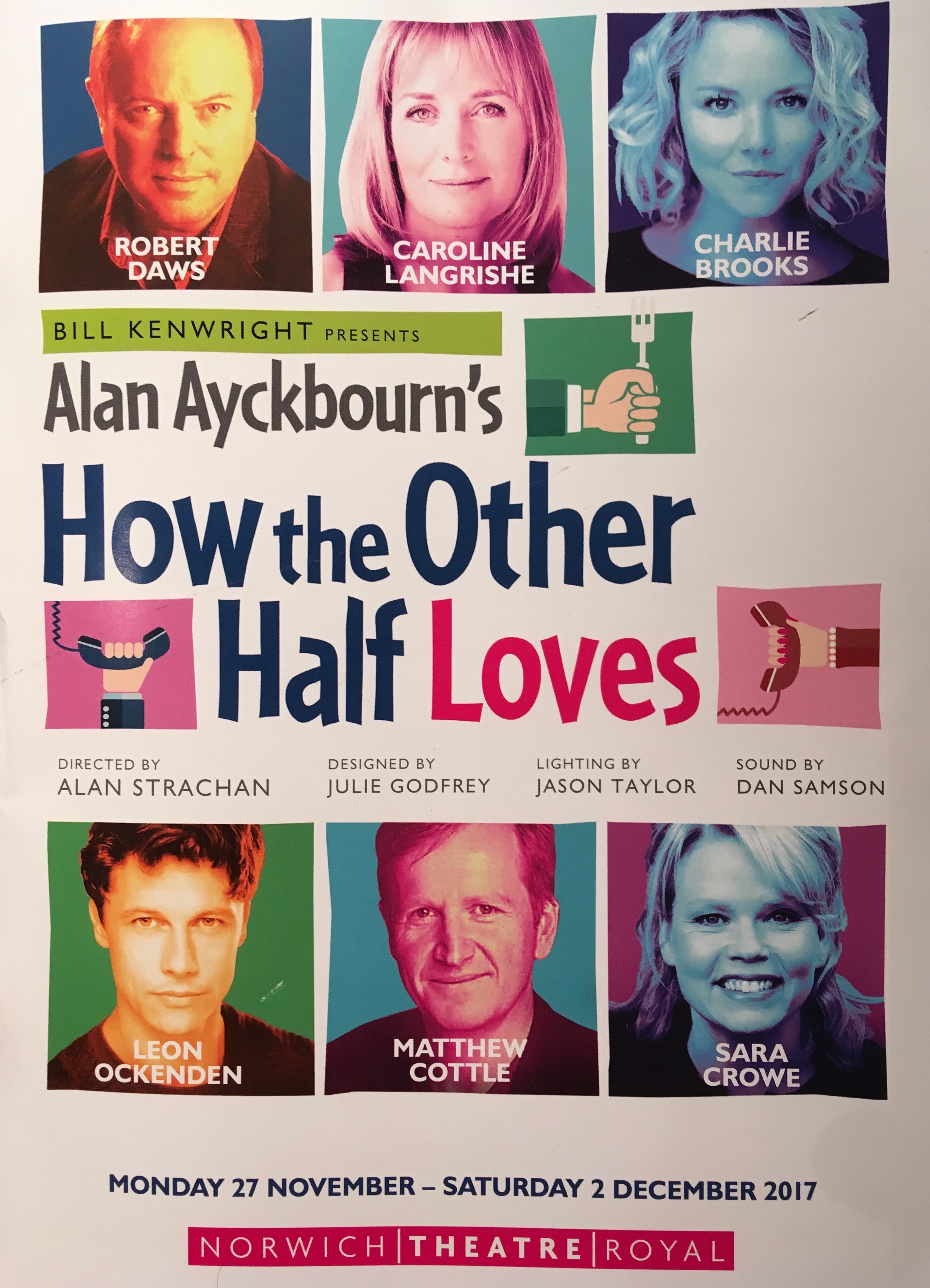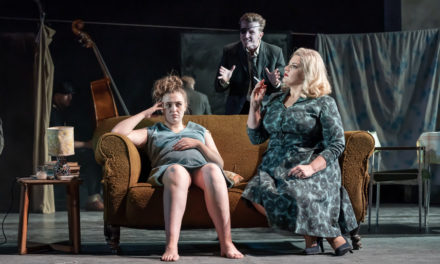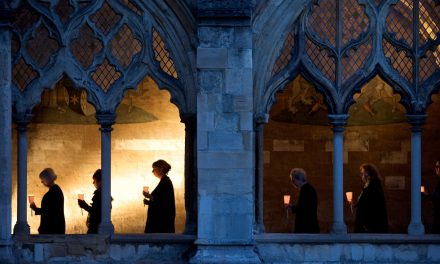The enclosed world of the middle class sitting room is a popular yet sometimes stultifying theme in stage drama. While they can give illuminating insights into the social mores and fashions of the time of writing (and staging) they need exceptional writing to lift them into the category of memorable dramas. “Abigail’s Party” is perhaps one of the better known on this list, but for consistent quality of dialogue an Alan Ayckbourn play is hard to beat.
The famed Scarborough playwright has set himself, and us, an extra challenge with this clever play which depicts not one but two living rooms simultaneously. The set is a mash up of parts of the Foster household and the Phillips home, with the Fosters being the middle class company boss and his rather flighty wife and the Phillips a young couple settling uncomfortably into chaotic family life with a new baby. Bob Phillips works for boss Frank Foster, a blustering old Britisher with staunchly traditional values.
At the heart of this 1969 drama is a night of illicit passion between Fiona Foster (Caroline Langrishe) and Bob Phillips (Leon Ockenden) and their subsequent efforts to obscure this fact from their respective spouses Frank Foster (Robert Daws) and Teresa Phillips (Charlie Brooks). By coincidence each claims to have been out late supporting the appropriate half of the other stage couple, William and Mary Featherstone (Matthew Cottle and Sarah Crowe), a dull accountant in the same office as Bob and Frank and his ultra-timid wife, who are pretended to have marital problems. The second half of the first act shows us the events of the next two evenings when the Featherstones are invited to dine with each of the other two couples in turn.
The logistics of this construct of showing two separate scenes on one stage simultaneously is of course an easy technique for film or television but requires considerable skill to be effective on stage. Our first clue on this confusing set is a phone call between the two households as each caller appears to stand next to the other, but we soon catch on and enjoy this clever device. Only then some of us notice that the telephone table itself is split into two differently styled halves.
It must be said that this play reflects the sexual expectations of the late 1960s. The Pill brought limitless opportunities for promiscuity and sexual liaison in these pre-AIDS times. Millenial readers may struggle to accept this but trust me kids, your parents (and grandparents) were all shagging like rabbits in 1969 given half a chance. The role of women is a bit of a shock to the system to – the men go out and do a manly day’s work in the office while wifey stays home fluffing her frocks, furniture or babies as required. My young companion for the evening was enraged enough by these gender stereotypes to express a desire to go and give the young Lothario Bob a good thump, but he would have been well down the queue for this, it appeared.

The Programme cover
Set aside the period observations and this is still a finely written observation of how couples work, and how deception can lead to chaos in even the most well ordered household. The cast are uniformly delightful, with former Eastenders villain Charlie Brooks reminding us that she is one of the finest actors of her generation. Sara Crowe gives a fascinating depth to the character of Mary, who represents the sort of housewife so often taken for granted. Robert Daws takes bumbling cluelessness to a new level as Frank, who endlessly causes more grief by jumping feet first to every wrong conclusion available. Leon Ockenden spends a fair amount of the play half dressed, and is suitably fit so it is not hard to understand the appeal to the posher if older Fiona, given elegant grace by Caroline Langrishe. Finally Matthew Cottle gives us an achingly precise picture of the obsessive loyal accountant William, driven by circumstance to acts he would never have thought possible in a well ordered life.
The timing in this clever play is a key to understanding the two contrasting scenes in front of us at any moment, and this cast have mastered the timing perfectly, from rapid exchange to ponderous pause alike. It is above all a very funny play, and even the grumpiest of watchers will soon be laughing out loud at both the clever writing and the nifty staging. This play looks at class, sex, manners, convention and changing generations, all wrapped into the chaos of four days in the lives of six people. It is the perfect reminder that an Ayckbourn play is always worth the effort of watching and gives an accurate mirror to English family life.
© Julian Swainson 2017
Listing:
How The Other Half Loves, Monday 27 November-Saturday 2 December at 7.30pm, and Wed and Sat matinees at 2.30pm. Tickets £8-£28.50. Discounts for Friends, Corporate Club, Over-60s, Under-18s, and Groups. Captioned performance on Wed 29 November at 2.30pm. Audio-described performance on Saturday 2 December at 2.30pm.
To book, log onto www.theatreroyalnorwich.co.uk or call the box office on 01603 630000.






Recent Comments